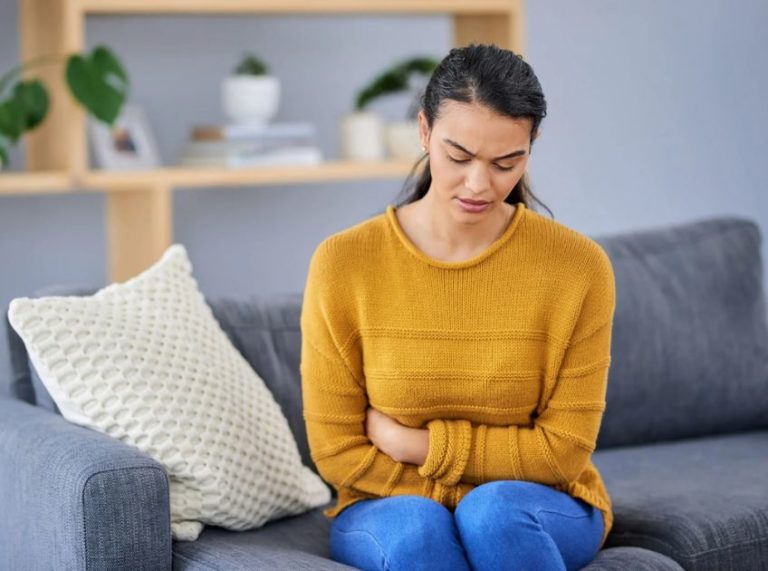
Important: This article is for informational purposes only. Please read our full disclaimer for more details.
Feeling a burning sensation in the legs below the knees is a common problem. Often, these sensations are very disturbing and can cause a lot of stress and disrupt daily life.
If you are suffering from this issue and are wondering what causes Burning sensations in the lower legs, then you have come to the right place. It is highly important that we first understand the various causes behind these sensations to know how they can be cured.
What Causes Burning Sensations in Lower legs?
1. Venous Insufficiency
One of the reasons for burning sensations in the lower legs is insufficiency in veins. This occurs when the veins in the legs have a problem flowing blood to the heart. This issue pools blood in the legs and may lead to symptoms like swelling, aching, or burning sensations on the skin (1).
2. Deep Vein Thrombosis
Deep vein thrombosis is a condition in which deep clots are formed within the leg veins. These blood clots can cause leg burning below the knees. As these clots obstruct blood flow, they induce inflammation.
This results in discomfort and a burning sensation. If such clots are left untreated, they may dislodge into the lungs. Such a condition is life-threatening and seriously affects the pulmonary system (2).
3. Nerve Compression
Peripheral neuropathy or nerve compression can cause grave discomfort in the legs- especially in the lower legs. This occurs when the nerves are compressed or damaged due to conditions like alcoholism or diabetes.
Such compression of the nerves may result in aching, throbbing, tingling, or burning sensations.
4. Varicose Veins
Varicose veins form when the vein valves malfunction. Such veins become prominent and twist abruptly. As the valves do not function properly, it may lead to poor blood circulation and increased pressure within the veins.
Varicose veins can easily be identified as their colors are usually blue, red, or purple. They cause heaviness and burning sensations in the legs. The legs may throb at most times, and it becomes very difficult to walk. The feet may also experience burning sensations (3).
5. Nerve Damage
Conditions like diabetes, vitamin deficiencies, and other medications can cause nerve damage. When nerves are affected, they may send abnormal signals to the brain, resulting in burning sensations in the legs.
6. Peripheral Artery Disease (PAD)
The blood flow reduces when the arteries in the legs become blocked or narrowed. This can lead to a burning sensation in the legs as it results in inadequate nutrients and oxygen reaching the leg muscles (4).
7. Muscle Fatigue and Overuse
When a person is involved in exhausting physical exercises or activities, then the leg muscles may get overused, resulting in muscle fatigue. This can cause a burning sensation in the legs as the lactic acid may build up and there might be heavy strain on the muscles.
8. Spider Veins
Spider veins are similar to varicose veins. They are smaller, web-like veins that cause hot sensations in the legs. They are close to the skin surface and commonly found on the legs, hands, buttocks, and stomach (5).
9. Restless Leg Syndrome
Restless leg syndrome is a neurological disorder that is characterised by an uncontrolled desire to move the legs. People suffering from this condition face uncontrollable and uncomfortable sensations like itching, tingling or burning, especially during the time of inactivity or at night.
When To Consult A Medical Professional?
If the burning sensations occur rarely, it might be just a deficiency of nutrients that can be controlled by taking supplements regularly. However, it is essential to take medical advice whether it occurs rarely or frequently.
If you notice swelling, skin discoloration, or persistent burning sensations, then you need to consult a doctor.
Home Remedies For Burning Sensation In Lower Legs
Here are a few things you can do at home to treat burning sensations in your legs.
- Leg elevation: Elevating your legs at an increased height can reduce swelling and improve blood circulation. You can do this by resting your legs on a pillow or a cushion to enhance the flow of blood to the heart. Whenever possible, try to support your legs above your heart level. This method may bring temporary relief to the burning sensations in the lower legs but is not the cure.
- Healthy lifestyle choices: A significant reason to experience burning sensations in the lower legs is having an unhealthy lifestyle. If you eat a balanced diet comprising all the nutrients, maintain a healthy weight and exercise regularly, then you can reduce the instances of having burning sensations in the legs. The diet you take should be rich not just in nutrients but also in fibre. Such a lifestyle change can drastically improve overall health and reduce the burning sensation in the legs.
- Wearing compression stockings: A compression stocking can help to promote proper blood flow in the legs. However, always wear them after a doctor’s recommendation. Such stockings can aid in preventing blood pooling and reduce symptoms like swelling, burning, and pain in the legs.
- Avoid prolonged standing or sitting: Today’s lifestyle and working culture leave most people sitting in their chairs for a long time. Such monotonous movement may lead to a higher risk of developing leg pain and burning sensations. You must stretch your legs from time to time, walk around at frequent intervals and perform simple exercises to keep blood circulating correctly at all times.
- Practice gentle exercises: Low impact exercises like walking or stretching can increase blood flow and hence reduce the warm sensations in the legs. Also, exercises can strengthen the leg muscles and relieve pain.
Risk Factors
Certain factors like obesity, smoking, pregnancy, and family history of venous disease can increase the probability of experiencing a burning sensation in the legs.
A burning sensation in the legs can be caused due to various reasons. However, it is not always alarming. In some cases, it might just be a temporary discomfort due to prolonged body position that heals automatically once the movement starts.
However, it is important to consult a doctor if these sensations persist or continuously worsen or are accompanied by other symptoms. By understanding the reasons, symptoms, and treatment methods, you can be ready to handle any such situation and improve your quality of life.
Related Articles
- What Might Cause a Sharp Leg Pain that Comes and Goes?
- Yoga for Knee Pain – 5 Simple Yoga Poses to Relieve Knee Pain
- Top 5 Ways to Treat Leg Cramps with Apple Cider Vinegar
- Sleeping with Pillow Between Your Legs: 5 Benefits, How to Do It
- Yoga for Sciatica – 6 Effective Poses to Ease Sciatica Pain
- 6 Effective Yoga Poses for Scoliosis Relief
- Broken Ankle Vs. Sprained Ankle: What’s the Difference?
- Does Epsom Salt Help a Sprained Ankle?
- 10 Best Leg Workouts for Women
- How To Get Stronger Legs at Home(7 Best Exercises)
- Top 10 Exercises To Tone Your Legs Fast



















